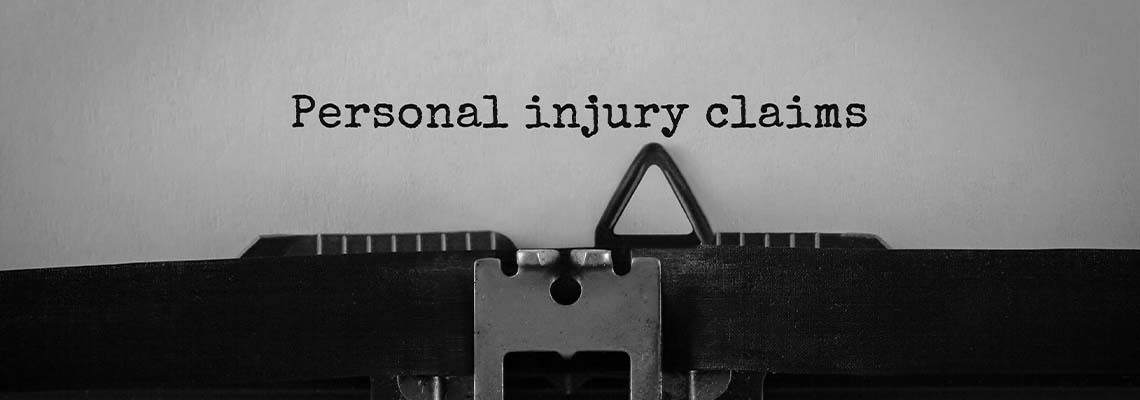
Statute of Limitations on Personal Injury Claims
When someone gets injured, they must be aware of their legal rights to make sure that they get the compensation to which they are entitled under the law. One of those legal rights is contained in the statute of limitations, which is a law that limits the amount of time injured persons must take legal action against the party responsible.
Understanding the statute of limitations in your personal injury case can help put you in the best position to obtain the maximum compensation you deserve. If you do not comply with this law, you may lose your right to pursue compensation.
Our team at Ranken & Shnider, Attorneys at Law, can explain the specific time limits that apply to your case to ensure that you have a complete understanding of your legal rights when recovering damages after an injury. We serve accident victims in Maui, Hawaii, including those who get injured in car accidents, bicycle accidents, pedestrian accidents, dog bites, and slip and fall accidents.
Statute of Limitations for Personal Injuries in Hawaii
The statute of limitations refers to the amount of time a person has to initiate a civil lawsuit. In most personal injury cases, the statute of limitations begins running on the date the injury occurs, though there may be exceptions such as the “discovery rule.” While the statute of limitations varies from one state to another, most personal injury cases in Hawaii must be brought within two years from the date of the injury. The two-year time limit applies to all types of personal injury cases, including but not limited to car accidents, slip and fall accidents, and dog bites.
Exceptions to the Statute of Limitations in Hawaii
As previously stated, most personal injury cases in Hawaii have a two-year limit, however there are some exceptions. According to the official website for Hawaii’s Department of Commerce and Consumer Affairs, Hawaii is a no-fault insurance state, which means victims of automobile accidents can seek compensation through their own insurance provider up to their personal injury protection (“PIP”) benefits limit.
When obtaining PIP benefits as compensation, each payment of those benefits extends the injured person’s statute of limitations. If the injured victim’s PIP coverage is not sufficient to cover their damages and losses, they can pursue a claim against the at-fault party. In this case, the statute of limitations is extended to two years from the date of the last PIP payment.
Another exception to the statute of limitations applies to medical malpractice cases. A patient who suffers harm as a result of substandard medical care may have more than two years from the date of the injury to file a civil lawsuit. In most medical malpractice cases, the statute of limitations “clock” may not start ticking until after the patient discovers their injury.
For example, if a surgeon leaves a foreign object inside the patient’s body, the patient may not experience symptoms for weeks or even months. In such cases, the statute of limitations begins running on the date the injured person discovered or should have reasonably discovered their injury.
Special Rules That Apply to Personal Injury Cases in Hawaii
As mentioned earlier, special rules apply when the injured victim is unable to discover their injury until a later date. This is known as the “discovery rule.” Under this rule, it would not be reasonable to expect an injured victim to file a lawsuit when they could not have discovered their injury.
The statute of limitations may also be delayed or tolled with when doing so would be fair under the circumstances. This may occur when the plaintiff is either a minor or mentally incompetent. In such cases, the statute of limitations may be tolled until after the minor turns 18 or the incapacitated person becomes mentally competent.
What Happens if You Miss the Filing Deadline?
In the vast majority of cases, missing the filing deadline means the injured person will automatically lose their right to initiate legal action and obtain compensation. The main purpose of setting a time limit for civil lawsuits is to protect would-be defendants from unfair legal action because memories are likely to fade away and evidence may be lost or destroyed after a significant passage of time.
If a person in Hawaii attempts to file a personal injury lawsuit after the two-year filing deadline expires, the court will most likely dismiss their claim unless their case qualifies for one of the exceptions mentioned above. In most cases, the longer you wait to file your case, the harder it may be to prove your case and the lower the value of your case.
Get the Support and Guidance You Need
Ranken & Shnider, Attorneys at Law, have fought for the rights of injured victims in Maui, Hawaii, for decades. We are committed to helping people get the compensation they deserve by educating them about the state’s laws, including the statute of limitations, and helping them make informed decisions in their personal injury claims. Contact our office today to set up a consultation and get the guidance you can trust.
